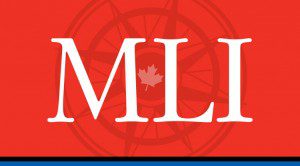 Trudeau’s recent trip to India has raised important questions on the health of India-Canada relations, writes Abhijit Iyer-Mitr.
Trudeau’s recent trip to India has raised important questions on the health of India-Canada relations, writes Abhijit Iyer-Mitr.
By Abhijit Iyer-Mitra, Feb. 26, 2018
Prime Minister Justin Trudeau has now nearly finished what has proven to be a rocky visit to India – one that shed some unexpected light on the deep hidden mistrust creeping into Canada-India relations on his watch, which could destroy decades of patient diplomacy by both sides.
What does “strategic trust” mean in tangible terms? Simply put, it is the knowledge of each other’s motives, and faith in the good intentions of the other. Easy to scorn, it is the pillar on which transactional and deep strategic ties are built. For example, it required almost two decades of sustained diplomacy for India to get the USSR to trust it. That trust was critical, in allowing India to crush radical communist movements, exacerbate the Sino-Soviet split, receive an implicit nuclear shield, as well as a veto at the UN.
Similarly, beginning in 1990, India and the United States engaged in such diplomatic foreplay, with a few hiccups over 18 years before the relationship finally blossomed with the 2008 India-US nuclear deal. This opened the door to a meaningful defence and intelligence sharing relationship, while rehabilitating India in the international community.
Under former prime minister Stephen Harper, Canada achieved in four years what took India and the U.S. 18 years. The sticking points were Canada’s mistrust of Indian nuclear ambitions and India’s dismay at Canada’s then bipartisan wink-wink-nudge-nudge approach towards terrorism on Indian soil, epitomized by the Air India (AI182) bombing. Initiating both the perjury trial of Inderjit Reyat to overcome double jeopardy laws, and a public inquiry into the entire sordid affair, the Harper government’s actions served as a signal to the Indian government that the ambiguity on terror was to end. This was followed up with a robust intelligence sharing architecture to ensure the slow but systematic build up of institutional trust. On the nuclear front, the Harper government enthusiastically supported the India exception at the Nuclear Suppliers Group in 2008, concluding its own bilateral nuclear pact with India in 2010.
Contrast this with Trudeau, a man with the unique ability to unite India’s left and right in a common dislike for him. The left-leaning Congress Party’s supporters detest him for being an enabler of Khalistani terrorism. The right-leaning BJP supporters revile him for being a practitioner of the very worst forms of identity politics. And Trudeau has taken it on himself to prove them both right. His ascent to the top of the Liberal Party was powered by the disenfranchisement of Sikh moderates who allege that Trudeau rigged internal elections to favour the violent loony fringe. This fringe is exactly what is represented in his cabinet, ministers who passively acquiesce to terror through omission and diversion.
Worse still is Trudeau’s politics of intersectional victimhood, welding a militant alliance of failure, paranoia and resentment that once again raised the spectre of Khalistani cooperation with Pakistan’s Inter-Services Intelligence (ISI) and normalized ex-ISIS Canadians. Sources in various Indian Intelligence agencies are now actively tracking an increasing tempo of such meetings. Surprisingly, none of these cues have come from the existing intelligence sharing arrangements between the two countries. Indeed how is an Indian interlocutor meant to raise such issues when his opposite number may very well be a person of interest empowered by the Trudeau government? Trudeau’s too smart by half, diversion of his visits to events and places that venerate mass murdering terrorists as being a “freedom of speech” issue, have given the impression that this drift has tacit approval from the very top.
Thankfully, Trudeau hasn’t touched the nuclear agreement between the two countries yet, but clearly his actions so far do not bode well for the bilateral relationship. Indian intelligence no longer seem to trust in a free flowing conversation with their Canadian counterparts, and this suspicion is slowly beginning to infect the nuclear domain as well. The image of Canada in India is consequently sliding back to the dark days of the 1980s where electoral success on Ottawa depended on turning a blind eye to bombs in Amritsar. The question now is where is the point of no return.
Abhijit Iyer-Mitra is Senior Fellow at the Institute of Peace and Conflict Studies, based out of India.




